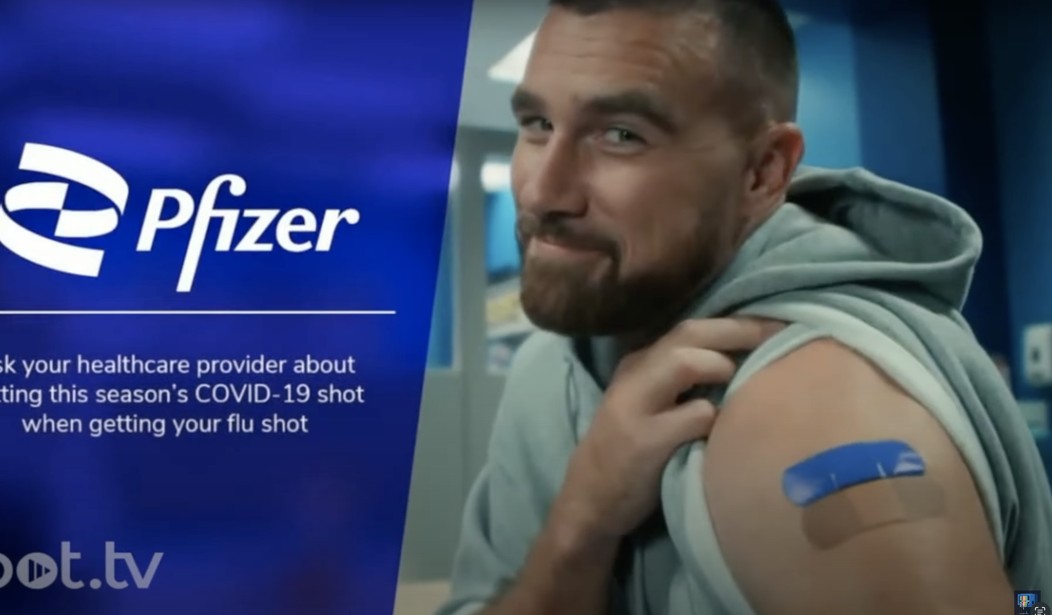Is it too soon for an American pharmaceutical giant to roll out a new mRNA-related vaccine?
Pfizer is rolling out its experimental mRNA flu shot, highlighting new findings that it outperformed a traditional flu vaccine, with confidence that comes from a company that remembers the glory days of daily COVID briefings and stock surges.
The Phase 3 results show one-third fewer flu-like illnesses among adults who received the experimental mRNA option than among those who received the long-used, egg-grown quadrivalent shot during the 2022-2023 season.
Pfizer reports that candidates achieved about 34.5% higher relative efficacy, with nearly all of it tied to influenza A, the strain that dominated that season.
Good numbers plus clean charts equals a win on paper.
It's much too soon; the nation's memory kicks the door open before any celebration is warranted. Medical products aren't the only evaluations Americans are measuring anymore; institutions are, too. The thought of receiving an injection of something with the initials "mRNA" appears to be quickly followed by nightmares of emergency rollouts, shifting goalposts, censorship, and mandates.
Looking back, it's easy to remember when asking questions made people dangerous to society, which led to job losses, and the role of "experts" who insisted, then walked things back very quietly.
As strong as the new Pfizer flu shot's potential may be, it's not nearly as strong as the public memory.
What the Flu Trial Actually Demonstrated
Over 18,000 adults enrolled in Pfizer's Phase 3 program, pitting its mRNA against a licensed egg-based quadrivalent vaccine. Roughly half received the mRNA candidate, and the rest received the traditional version. Starting two weeks after injection, researchers monitored flu-like illness throughout the season.
The results were promising. The mRNA group had about one-third fewer lab-confirmed flu-like illnesses, with most cases caused by influenza A, where the mRNA version worked best.
Not all results were sparkling. Independent summaries note high rates of fatigue, chills, fever, and muscle aches among the people who received the mRNA version. Those reactions didn't last very long, but they were noticeable. In other words, it was a tradeoff: better protection in exchange for more immune activation and symptoms.
Viruses grown in chicken eggs are the primary source for traditional flu shots, widely used for decades, but they are slow and inflexible. It takes six to eight months to develop egg-based vaccines, which rely on early-strain predictions that never quite align with reality, while mRNA platforms promise speed and adaptability.
As a country, we've moved past judging shots solely by speed. We need to trust the companies behind the platforms.
Unfortunately, trust leaves the deepest scars.
How mRNA Flu Testing Differs from the COVID Sprint
Although sharing the same initials, the mRNA flu shot timeline bears almost nothing in common with its cousin, the COVID-19 "vaccine."
Pfizer's COVID shot was pushed through overlapping phases at a record pace because the world demanded something yesterday. The human trials began in the spring of 2020, and by July, the program had entered Phase 3; by November, the company presented efficacy numbers.
Unprecedented speed brought radioactive politics.
The flu program, however, lived on the bench far longer. Long before Wuhan became a global noun, Moderna and Pfizer had spent years toying with mRNA designs. Research groups focused on the platform's potential to rapidly update to keep up with influenza strain shifts.
Companies pushed flu candidates into traditional multi-season testing once the COVID campaign proved the platform could scale, and this flu trial followed normal regulatory steps and progressed through phases.
Two different situations, two entirely different paces: no emergency authorizations, compressed timelines, or global panic rushes, generating a much stronger scientific foundation. Science is one thing; politically speaking, the COVID shadow falls over each syringe.
How Long Has the mRNA Flu Shot Been in the Works?
Building on three decades of mRNA research, enormous progress was made in the 2010s as scientists solved stability issues, addressed immune responses, and developed delivery systems. Influenza quickly became the #1 target due to its ability to mutate rapidly.
Research networks were already mapping out next-generation flu vaccines built on mRNA by 2019. With COVID's ability to mutate, the mRNA platform showed how quickly things adapted; Pfizer accelerated long-running work on both flu and combination COVID-flu candidates.
Because its roots had taken hold over many years of research, the current Pfizer flu shot candidate has undergone several seasons of study, including dosage trials and earlier efficacy work, long before today's headlines.
This mRNA shot wasn't invented over the weekend; it's a decade-plus product in the making.
In a country where perception becomes reality in many situations, public perception doesn't revolve around the timeline, just around memory.
Is It Actually Better Than The Traditional Flu Shot?
Although the 34.5% figure is a relative efficacy figure, it sounds more dramatic than it truly is. Relative numbers compare two groups; the absolute benefit shows how many people out of 100 gain extra protection.
This trial pits an mRNA candidate against a standard-dose egg-based vaccine, not the higher dose or adjuvanted versions currently recommended for seniors. So, for now, we don't know how the mRNA options compare to the stronger versions used for older or vulnerable demographics.
What's also unclear is protection against influenza B, which circulated very little during the 2022-2023 season. A few more seasons are needed to give Pfizer more data to claim broad-spectrum superiority.
The current picture looks like this: promising performance, an incomplete picture, higher short-term reactogenicity, and no clear evidence yet that it beats every existing option.
Although the mRNA platform might become the future of flu vaccination, it doesn't dethrone the entire field in a single stroke.
Recommended: The Deficit Drop That’s More Than Numbers: U.S. Trade in Transition
Will Americans Trust Another mRNA Shot?
Sitting at the heart of the question is trust, not any lab performance.
Nationally, surveys show a deeply split America. Only one-third view mRNA as broadly safe, a larger group considers them unsafe, and the majority says there's not enough information available to trust the platform anymore. mRNA's novelty alone lowers confidence.
In the best of circumstances, many Americans view flu shots as optional — after three years of COVID mandates, censorship, and government overreach, anything that's even remotely related to mRNA triggers concern.
There's a long memory of people remembering forced shots under the threat of termination, social media giants suppressing legitimate debate, and officials speaking in absolutes that collapsed later.
As excellent as the science for mRNA flu vaccines is, public trust is a separate issue entirely.
There's the long-overdue audit of public health agencies promised by the Trump administration. Voters need transparency first, then persuasion, with the word "mandate" never uttered again.
Final Thoughts
Pfizer's mRNA flu shot might be a scientific upgrade — a shot that updates faster, adapts quicker, and offers stronger protection, helping reduce winter hospital strains. And, unlike the COVID sprint, this flu program is moving through traditional phases backed by years of groundwork.
Scientific capability isn't the real obstacle; public memory is.
Americans lived through a period in which political pressure was disguised as science, watching bureaucrats reverse positions without apology, seeing dissent punished, and losing trust in institutions that demanded it by decree.
Pfizer may have a better flu shot, but the nation remains unconvinced that the people running the health-industrial complex have learned anything from the past several years.
Improved vaccines don't automatically earn a better reputation; trust builds more slowly than mRNA translates into protein.
That trust must be earned, not announced.
Why Your Support Matters
Independent platforms like PJ Media keep asking the questions legacy media avoids. Our writers dig into trial data, regulatory history, and public policy without taking dictation from pharmaceutical PR teams.
If you value that kind of work, consider joining PJ Media VIP. A membership unlocks deeper reporting, commentary, and analysis that corporate outlets would rather you never read.










Join the conversation as a VIP Member